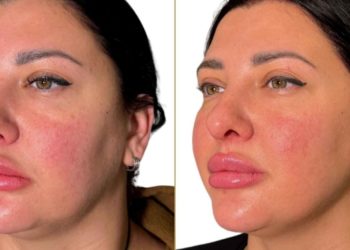Nutrition and brain fitness have a profound relationship. Understanding this relationship is crucial to getting proper mental health. Research has shown that your food plan has a great effect on stress levels and different body functions. For example, Edith Cowan University’s study determined that people who ate a weight-loss meal with fruits and vegetables. They experience 10% lower stress levels when compared with people who consume less.
A poor diet directly or indirectly enhances your depression and anxiety. If you want to maintain your physical and mental health, you should understand this relationship. Look after your diet and get proper meals in accordance with your mental health. If you want to treat your depression with essential nutrients, you can take them from Duespower Shop.
Nutrients and Brain Correlation
To perform well, our mind needs some precise vitamins. For example, to improve mental health, take omega-3 fatty acids, which may be found in fish, walnuts, and flaxseeds. These play a critical role in decreasing your depression level. The neurotransmitters in our brain are accountable for regulating stress and anxiety. You can take vitamins like B6 and B12 to serve the brain.
If you choose a meal that incorporates the right nutrients, minerals, and amino acids, then it is known as a balanced eating plan. This nutrient-rich food will aid your brain’s capability to produce neurotransmitters. The neurotransmitters clearly save you from oxidative stress and reduce inflammation within the brain.
If you like to eat a Mediterranean weight loss diet, you have to take a meal consisting of vegetables, nuts, some culmination, and healthy fat it. This might lessen your stress, and in the long run, your mental health would be improved.
The Gut-Brain relationship
The intestine and the brain are interlinked and play an enormous role in mental fitness. The gut and the brain bidirectionally speak with each other. Your gut health immediately impacts your brain health. We know trillions of gut bacteria exist. These microbiomes play a crucial role in gut-brain relationships. The gut’s good bacteria can influence your mood and reduce depression.
You can select prebiotics or fermented foods to empower the healthy microbiomes of the gut. These diets may include yogurt, kefir, sauerkraut, and kimchi. You can balance your gut bacteria by eating these foods. These bacteria positively influence the functions of the brain and stress levels. These diets can improve your mental health and overall body health.
Dietary Interventions for Mental Health
An emerging field known as nutritional psychiatry studies the impact of diet on brain health. Their studies show that your meal has a direct impact on your mental health. Diet interventions can prevent abnormal brain functions as well.
Your diet should include whole grains, fruits, vegetables, lean protein, and some healthy fat. Besides this, try to avoid sugary foods and processed foods to improve brain health. Nutritional psychiatry says that changes in diet can influence brain functions. These can stabilize your mood and ultimately boost your mental well-being.
Practical Tips for Better Mental Health
Here are some tips you can follow to improve your mental health through diet:
- Not stuck with the same meal; Try various meals in your diet
- Make a habit of consuming sufficient water to prevent dehydration.
- Try to restrict the use of processed foods.
- You must include omega-3 in your diet
- Take balanced meals through proper meal planning
Conclusion
Nutrition can impact your brain health greatly. To support your mental health, it is crucial to consume a balanced diet enriched with essential nutrients. It can stabilize you emotionally. By choosing a mindful diet, we can prevent stress or anxiety. Do some changes in your diet first and get long-term benefits for your mental health. Small, gradual adjustments can lead to significant improvements in overall mental health.

![7 Best POS Software in the UK [2026 Edition]](https://todaynews.co.uk/wp-content/uploads/2026/02/7-Best-POS-Software-in-the-UK-2026-Edition-360x180.png)




































































![7 Best POS Software in the UK [2026 Edition]](https://todaynews.co.uk/wp-content/uploads/2026/02/7-Best-POS-Software-in-the-UK-2026-Edition-120x86.png)






